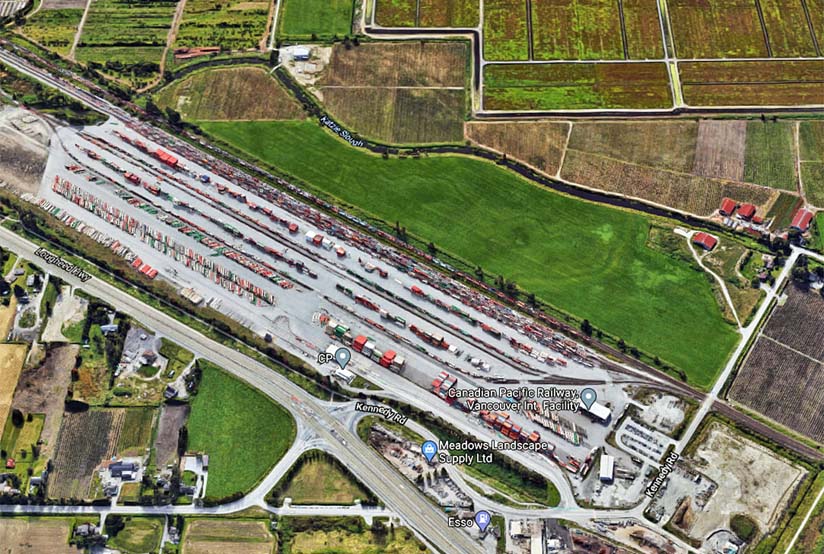
Pitt Meadows British Columbia - Pitt Meadows city council wants to increase property taxes for Canadian Pacific (CP) by some $1.1 million
per year.
At Tuesday evening's meeting, council noted the railway is taxed at the same rate as Class 6 Businesses, which include dentists and other offices, restaurants,
and retail locations.
Mayor Bill Dingwall called it "completely counter intuitive" that railways would be in the same class as these businesses.
"Typical businesses do not transport dangerous goods, interrupt traffic flow, generate noise 24 hours per day, seven days per week, impede emergency
response, or pollute the environment. It is more appropriate that railway activities be rated and taxed as Class 5 Light Industrial," said
Dingwall.
If CP's existing properties were adjusted from Class 6 Business to Class 5 light industrial, the city would receive an additional $440,000 more tax revenue per
year, noted CAO Mark Roberts.
CP is also proposing a new logistics park.
The same tax adjustment on that site would bring an additional $660,000, for a total of $1.1 million additional taxation per year on CP's Pitt Meadows
properties, based on current rates.
"Additional tax revenue would help offset the significant financial burden borne by the city in addressing road infrastructure replacement, fire
protection services, and the increased burden on other city operations as a result of CP activities," said Roberts.
The proposed Logistics Park, which would be located immediately south of the CP intermodal yard, would bring fuels, agricultural products, and vehicles to the
site.
Council and residents groups have opposed the development based on air pollution, environmental concerns, noise, traffic, and the increased fire
hazard.
"The proposed CP Logistics Park exacerbates an already challenging situation. Kennedy Road was not designed to accommodate hundreds of semi trucks
accessing the existing Vancouver Intermodal Terminal on a daily basis. Housing large grain silos, transload, and storage of ethanol fuels are deemed a high
fire hazard. To meet the Canadian National Fire Protection Association Standards, 24 Fire Services Technicians (FSTs), with specialized training, would need to
be on shift 24 hours per day, seven days per week. In 2021, Pitt Meadows will have eight FSTs, or only one third of the resources required to provide
appropriate response to the CP Logistics Park and community protection," said Dingwall.
CP says the logistics park project would provide 150 to 250 direct jobs, and hundreds more during construction.
Also, they said the facility would bring CP's contribution to Pitt Meadows up to $4.1 million in property taxes at current rates, which is approximately 20
percent of the tax revenue collected by the city in 2020.
The total would include taxes from the current intermodal facility.
Provincial legislation related to railway property taxation was updated in 1996 with the intent of reducing taxation on rail companies, to facilitate new rail
investment deemed necessary to support growing populations in Canada.
The Union of BC Municipalities (UBCM), a collective voice for BC local governments, advocated halting the reduction of railway taxation.
Despite the efforts of UBCM, the Government of B.C. proceeded with the legislation.
"Approximately 20 years has passed since the railway taxation reductions. Council is taking an advocacy role by requesting a review of the
legislation," said Dingwall.
He told council it would be a "steep climb" to change the tax rate, but said the city will start a conversation.
The first step is for city staff to prepare a resolution which council would present for consideration at the Lower Mainland Local Government Association this
spring for a review of the BC Assessment Act property classification assigned to railway activities.
Upon LMLGA endorsement of the resolution, it would be forwarded to the UBCM's fall conference for consideration.
Resolutions endorsed by UBCM are then conveyed to the provincial government for consideration.
Neil Corbett.
(because there was no image with original article)
(usually because it's been seen before)
provisions in Section 29 of the Canadian
Copyright Modernization Act.
